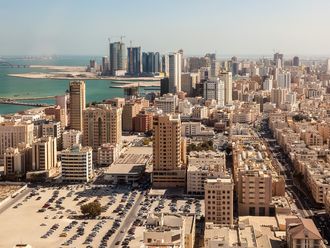Manama: Gulf Air, Bahrain’s national carrier, has reported progress in the implementation of its restructuring strategy.
“Despite a difficult operating environment, the restructuring measures have started yielding results and the strategy remains on track to achieve overall cost savings of 24 per cent by the end of 2013,” Gulf Air said.
“In January 2013, through the implementation of prudent cost-saving measures and an aggressive efficiency drive, the airline reduced its overall losses by over 34 per cent compared with January 2012, posted 9.6 per cent increase in passenger revenue against its budgeted revenue and, increased its yields by over 8 per cent.”
The airline also cut its expenditure significantly through reductions in aircraft lease fees, flight related charges, staff expenses and the closure of four loss-making routes.
According to Gulf Air, the restructuring plan, based on the current progress and the estimated forecasts, is on track to achieve its cost savings target by the end of 2013.
“Indications are also strong that the Revenue per Available Seat Kilometre (RSK) will achieve the targeted 9 per cent increase in 2013 through the establishment of robust performance frameworks designed to deliver greater efficiencies,” the company said.
The realignment of the airline’s network to strengthen its Middle East and North Africa (MENA) operations progressed as planned in January with the closure of four loss-making destinations, it said.
Gulf Air said that it was expecting to complete its network realignment by March 2013.
“It will continue to strengthen its regional markets offering flexible and multiple flight options while providing strategic links to selected European, Far East and India markets,” the company said.
“With a focus on high-demand and high-yield point-to-point routes to connect Bahraini businesses with regional markets as opposed to low-yield transit traffic, Gulf Air continues to carve a long-term niche in a highly competitive business environment.”
The airline said that the groundwork had begun to simplify and align its fleet with its revised network requirements.
“Successful negotiations were concluded in January to return two leased regional Embraer E90 jets. Further negotiations are ongoing to complete the fleet realignment by April 2013. The airline now operates an all Airbus fleet.
The finalised fleet of 26 aircraft with a mix of wide and narrow body aircraft will be optimally utilised to serve the airline’s new network.”
Gulf Air said that it would operate one of the youngest fleets in the region with an average age of just 4.3 years.
The airline said that the majority of its reductions “to ensure the workforce is aligned to the business requirements of the organisation” would be done through a number of measures that included non-renewal of contracts, restructuring in outstations, natural attrition and a voluntary retirement scheme.
Last month, the total workforce was reduced by 6 per cent.
However, no Bahraini pilots will be affected by the restructuring, the company said.












